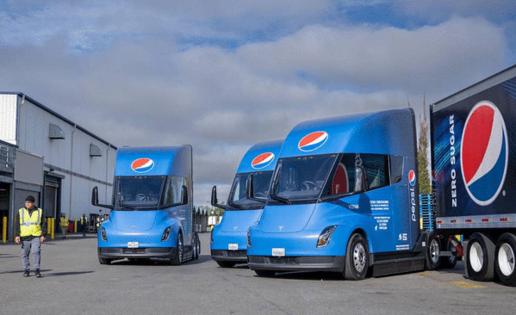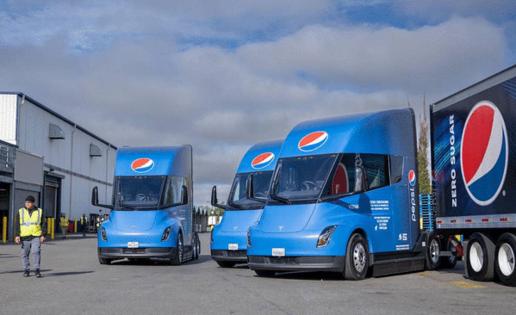California backs out of clean truck and train regulations ahead of Trump administration
Published in News & Features
SACRAMENTO, Calif. — California withdrew plans for pioneering clean-air regulations targeting diesel trucks and trains Tuesday, citing challenges posed by the incoming Trump administration. The state rules faced an uncertain future with federal approval in jeopardy.
The state’s Advanced Clean Fleet rule sought to end sales of new fossil-fuel-powered trucks by 2036 and require large fleets to transition to electric or hydrogen models by 2042. A parallel locomotive regulation also sought to phase out diesel-powered engines.
These measures — hailed by environmentalists and seen as critical to combating climate change — would have reduced harmful pollution and emissions impacting disadvantaged communities near California freeways, ports and rail yards.
The move marks a recalibration of the state’s environmental strategy under shifting federal priorities as state leaders ready for a second Trump administration. President-elect Donald Trump has previously opposed California’s clean-air rules and threatened to revoke similar policies.
California has a unique authority under the Clean Air Act to set stricter emission standards, but federal approval through Environmental Protection Agency waivers is required.
While the Biden administration approved a landmark mandate phasing out new gas-powered cars by 2035, it did not act on four remaining waivers ahead of Trump’s inauguration.
In response, the California Air Resources Board withdrew its waiver requests to maintain control over the regulations and mitigate potential rollbacks under the new administration. Chair Liane Randolph said the board is assessing its options.
“While we are disappointed that U.S. EPA was unable to act on all the requests in time, the withdrawal is an important step given the uncertainty presented by the incoming administration that previously attacked California’s programs to protect public health and the climate,” said Randolph in a statement.
State officials anticipate increased legal battles over their environmental policies, with litigation expected from both opponents and defenders of the state’s climate initiatives.
The trucking industry pushed back on the Advanced Clean Fleet rule, citing high costs, limited infrastructure for zero-emission vehicles, and challenges for small operators.
“The California Trucking Association has consistently stated the Advanced Clean Fleets Rule was unachievable,” Eric Sauer, chief executive of the association, said in a statement. The industry, he added, will continue working “to further reduce emissions in a technologically feasible and cost-effective manner that preserves our State and the Nation’s critical supply chain.”
Yet progress on the transition to electric trucks is already underway, with some companies adopting electric and hydrogen fleets. In 2023, zero-emission vehicles accounted for one in six truck sales in California, signaling market progress despite regulatory uncertainty.
Daniel Sperling, director of the Institute of Transportation Studies at UC Davis and former CARB member, said the Advanced Clean Fleets rule was intended to facilitate the transition but ultimately became unnecessary and politically problematic.
“It has already stirred up a lot of controversy, opposition and concern by a lot of people and communities,” he said. “And the question is, was it really even needed? It probably is better that it doesn’t happen.”
He suggested alternative incentives such as a “fee-bait” system to promote zero-emissions trucks by applying registration fees to diesel vehicles for revenue that can support incentives for battery electric trucks at no cost to government or taxpayers.
Craig Segall, vice president of the environmental group Evergreen Action, pointed to the loss of major public health benefits with CARB’s decision. But he agreed with the need for alternative options and called on truck makers to follow through on their promises.
“CARB is doing the smart thing here. You can’t leave it sitting in front of some nightmare Trump appointee to decide,” said Segall. “But I am disappointed that we’re here.”
_____
©2025 The Sacramento Bee. Visit sacbee.com. Distributed by Tribune Content Agency, LLC.










Comments